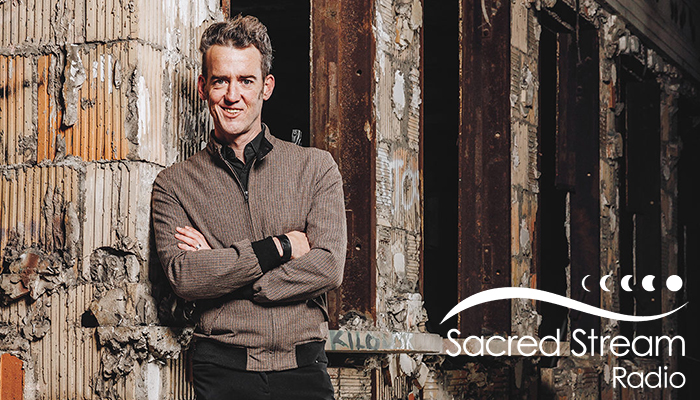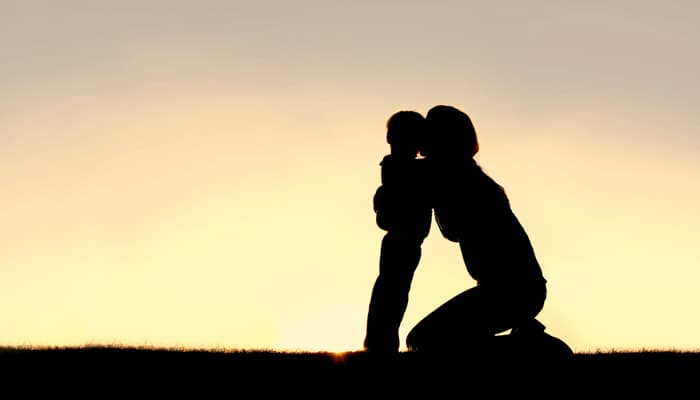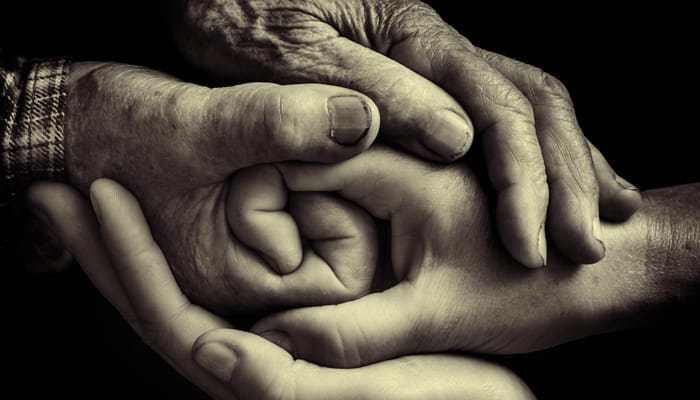Category: Personal Responsibility
Podcast: Episode 76: Christopher Tait: Passenger Recovery
On this episode, Laura talks with Christopher Tait of Passenger Recovery and Detroit rock bands Electric Six, Belle Ghoul, and Palace Pier. Chris has been with Electric Six since 2002 and has earned a gold record among other accolades. Sober since 2011, he formed Passenger Recovery in 2016, a small non-profit based in Detroit, to help sober artists and crew that are on the road connect with resources for traveling in recovery, including transportation to meetings locally. Since its inception, it has grown into an international organization helping artists worldwide.
Blog: Personal Responsibility: An Interview with Isa Gucciardi, Ph.D.
Question: How would you define personal responsibility?
Isa: Personal responsibility is a process of becoming more self-aware, understanding your motivations, your intentions, and the effect your actions and thoughts have on you and those around you. It involves a willingness to contemplate the consequences of your emotional responses, and the ability to recognize when those expressions are harmful and when they are beneficial.
Blog: Conscious Parenting Part 6: Learning from Our Triggers
By Joanna Adler, Psy.D.
Editor’s note: Joanna Adler, Psy.D. is a certified Depth Hypnosis Practitioner and licensed clinical psychologist. Her two-day workshop on Conscious Parenting will be at The Bodhi Center in Bainbridge Island, WA on the weekend of April 28-29.
Life throws so many difficult things at us as parents. It’s important to find enough time to support ourselves so that we can be resilient and offer that same support to our children. We know this, but sometimes it can feel like yet another thing to do. The good news is that there are practices we can cultivate for when we encounter difficulty in our relationships with our children, practices that allow us to get out of the way and offer the child what is truly needed in that moment.
Blog: Finding Your Spiritual Path Part 4: Intention and Motivation
By Isa Gucciardi, Ph.D.
After we realize that our trust has been betrayed, we may be thrown into a state of crisis. One of the gifts that can emerge from this experience, as we touched on in a previous post, is the opportunity to re-examine — or perhaps to discover for the first time — our intention, in the first place, in placing our faith in the person or organization that betrayed us.
Blog: Finding Your Spiritual Path Part 3: Personal Responsibility
By Isa Gucciardi, Ph.D.
In the last blog post in this series, I had mentioned how important it is not to rush to forgiveness in response to betrayal. Generally speaking, when we have been wronged or betrayed we have a lot of internal experience that we need to explore before we can even think about forgiving another person. Therefore it is important not to be rushed by anyone to forgive until you fully understand what work you have to do to get to the place where you can forgive truly and cleanly.
I also talked about how people who have been disillusioned by authorities that they placed trust in often experience an internal process of blame. This can look like self-questioning such as, “Why did I ever trust that person in the first place?” Or, “What did I do wrong to deserve this?” These are not helpful questions to dwell upon, because by their very nature, they imply a sense of self-blame.
Blog: Buddhism in Action Part 2: A Depth Hypnosis Case Study
By Isa Gucciardi, Ph.D.
Most of us are very attached to having what we want happen and preventing what we don’t want from happening. But when we try to create a life in this way, we develop misconceptions about ourselves and the people and world around us. In the Depth Hypnosis method, when considering the issue a client presents and their emotional history, practitioners draw upon this Buddhist idea that we suffer when we are unaware of the way our attachments and aversions drive our behavior, or when we have misconceptions about what our life presents to us and about what that might mean for us.
Blog: Buddhism in Action Part 1: Depth Hypnosis and Buddha Nature
By Isa Gucciardi, Ph.D.
Depth Hypnosis is a spiritual counseling model that integrates many principles from Buddhist thought and practice with hypnotherapy, earth-based methods of healing, and transpersonal psychology. The Depth Hypnosis methodology rests upon the understanding that all imbalance is simply information about the way the person has twisted away from their essential nature, or what is known in Buddhism as Buddha Nature. And this is true whether the imbalance arises on a physical level as an autoimmune problem, on an emotional level as a depression, on a mental level as an anxiety or on a spiritual level in something like a “dark night of the soul.”
Blog: Integrity in the Face of Hate, Separatism, Exclusion
By Isa Gucciardi, Ph.D.
This week has been difficult for many people who are concerned about the resurgence of hate crimes and the general mood of separatism and exclusion that seems to have taken hold across the country. The U.S. is not the only country where this kind of separatism has occurred. The Brexit vote in the United Kingdom was fueled by the same fear and rejection of those who are different. And this is not the only time in history where there has been a strong surge of nationalist ideology driven by hatred of those who are seen as “other.”
Blog: Healing the Divide: How to Find Our Way Back From Negative Intention
By Isa Gucciardi, Ph.D.
For the last year, our psyches have been under attack. Every waking moment of public life has been a bombardment of political partisanship and bellicose assertions. Even those of us who unplug from television and other forms of media have not been immune to it. There has been a general sense of unease and fear in the air and no matter which side of the political aisle you take your seat, you are bound to be feeling some sadness, confusion, or anger as a result of the accumulation of negativity experienced this past year.
Blog: Ask Isa: Setting Boundaries to Negativity
By Isa Gucciardi, Ph.D.
Question: I would like to know what you think about the idea of people being a mirror to us. For example, if you find yourself irritated by someone who is always crabby with you, are they a mirror to you? Or are you just meeting someone crabby or irritating?
I really appreciate this question. Because so many of us, once we have dedicated ourselves to the goal of becoming more conscious human beings, can find it challenging to discern how to use everyday difficulties as the means for moving toward this goal.
Blog: Finding Power in Powerlessness
By Isa Gucciardi, Ph.D.
The roots of anger, and indeed, the roots of many potentially destructive emotions, lie in powerlessness. Most people would not choose destructive emotions as a way to gain control over circumstances if they could learn to tolerate not having control over the situations around them.
It is important to be gentle with yourself and have self-compassion as you learn to be present with your anger. It is easier to be compassionate with yourself if you can trust your ability to take responsibility for any way you may have harmed yourself or another with anger. In this way, you won’t look for the easy “out,” but instead learn everything you have to learn from the way you have related to your anger. In this way, you can understand the roots of your anger more fully, make amends where needed, and honor the information contained in your anger.
Blog: Listening to Anger
By Isa Gucciardi, Ph.D.
There is a Mahayana Buddhist idea that everything in our experience is part of the path to enlightenment. This is very important to remember when we find ourselves wanting to avoid relating to others because it seems too overwhelming. We must remember that everything that comes up in our experience is workable.
Blog: Having Compassion for Yourself and Others
By Isa Gucciardi, Ph.D.
How attentively do you listen to yourself? Are you engaging in negative self-talk? Are you seeing your own self-talk reflected in how you talk to others? Are others having a reaction? Is it hard to ignore or deny that reaction?
Here’s a hint: There is probably a part of yourself that is hearing that negative self-talk and having a reaction similar to those around you who you might be treating in the same way. This is one of many benefits of being in relationship. We can learn about ourselves and see ourselves through the lens of relationship.
Blog: Being Present in Relationship
By Isa Gucciardi, Ph.D.
It is a common tendency to think that if we just ignore a problem, it will either go away on its own or we won’t feel its effect. Ignoring our problems leads to confusion about what is real and what is true. Unfortunately, one of the most common responses to this state of confusion is to go into denial about the fact that the effect of not being present is causing a problem.
Blog: Interdependence
By Isa Gucciardi, Ph.D.
In a recent podcast, Robert Thurman, noted Buddhist scholar, asked, “What would you do if you realized that you would never be able to get off the subway car you were on this morning – that you were going to be with those people for infinity?”
For one thing, it would probably change the way we viewed those people. If we are all in a subway car together cruising through eternity, it would probably be a good idea to start figuring out how to get along.
I have spent many years trying to help people figure out how to get along through my Depth Hypnosis practice and teaching. Mostly I try to help people figure out how to get along with themselves – because you really can’t get along with anyone else until you have yourself figured out.















